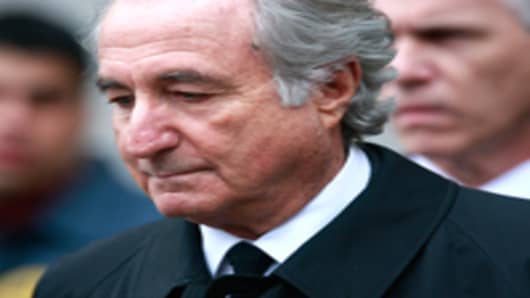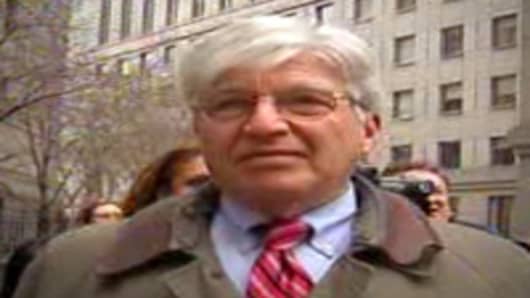By the time Madoff called Sorkin on Dec. 11, the financier had already confessed to the FBI, leaving Sorkin with little to do but massive damage control.
"I told him, 'say no more,' but by then it was too late," Sorkin said.
At the time, Sorkin had no idea how big the scam was in dollar terms, but he had a good idea of what he was getting into.
"I knew of his reputation on Wall Street, and I knew how he was perceived on Wall Street, and by the regulators," Sorkin said. "So I knew on something like this, it would have an impact."
The Madoff scandal would hit some 16,000 investors, and many more indirectly through feeder funds, as well as charities that invested with Madoff. It would also badly shake investor confidence, already in tatters following the financial crisis.
As Sorkin worked to preserve Madoff's rights and contain the collateral damage from the scandal, he found himself on the receiving end of the public's rage, including, he says, death threats and "vicious" anti-Semitism.
Today, Sorkin keeps a loose-leaf notebook on his desk, filled with some of the angry e-mails he received.
"Most of the e-mail, putting aside the cursing and the death threats and the anti-Semitism, dealt with, 'How can you possibly represent someone who's a criminal?' 'How can you represent someone who did this terrible thing?'"
Sorkin says those are the e-mails he found most disturbing.
"We (defense attorneys) play a role of standing between the power of government and those accused of a crime," Sorkin said, "And unfortunately, too many people don't understand that."
Sorkin says the case reminded him of why he chose to become an attorney.
"If nothing else, I'm often asked, would I do this again? And the answer is, absolutely yes," Sorkin said.




